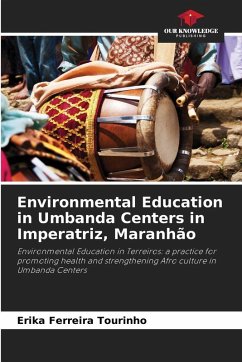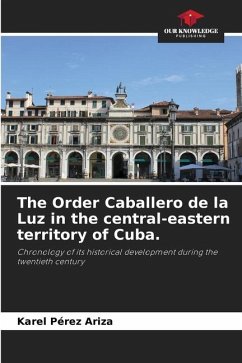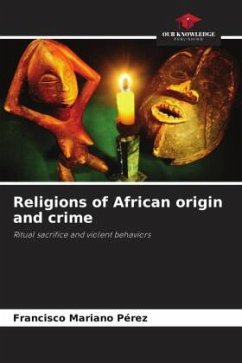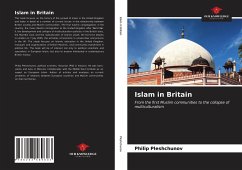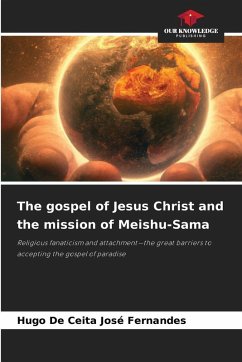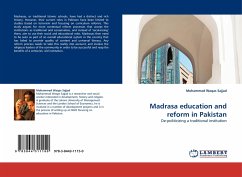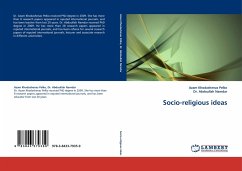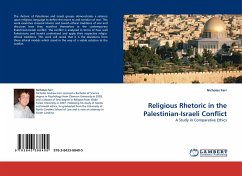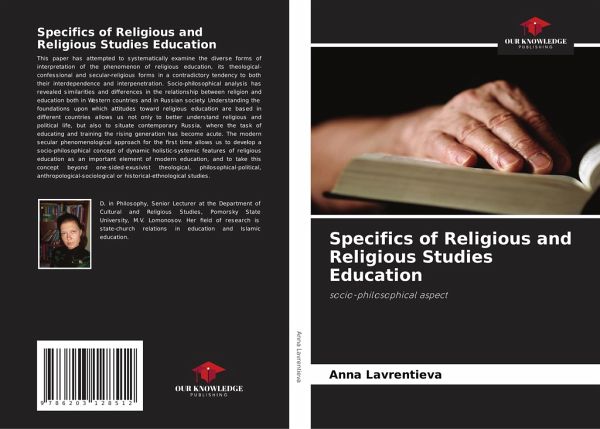
Specifics of Religious and Religious Studies Education
socio-philosophical aspect
Versandkostenfrei!
Versandfertig in 6-10 Tagen
52,99 €
inkl. MwSt.

PAYBACK Punkte
26 °P sammeln!
This paper has attempted to systematically examine the diverse forms of interpretation of the phenomenon of religious education, its theological-confessional and secular-religious forms in a contradictory tendency to both their interdependence and interpenetration. Socio-philosophical analysis has revealed similarities and differences in the relationship between religion and education both in Western countries and in Russian society. Understanding the foundations upon which attitudes toward religious education are based in different countries allows us not only to better understand religious a...
This paper has attempted to systematically examine the diverse forms of interpretation of the phenomenon of religious education, its theological-confessional and secular-religious forms in a contradictory tendency to both their interdependence and interpenetration. Socio-philosophical analysis has revealed similarities and differences in the relationship between religion and education both in Western countries and in Russian society. Understanding the foundations upon which attitudes toward religious education are based in different countries allows us not only to better understand religious and political life, but also to situate contemporary Russia, where the task of educating and training the rising generation has become acute. The modern secular phenomenological approach for the first time allows us to develop a socio-philosophical concept of dynamic holistic-systemic features of religious education as an important element of modern education, and to take this concept beyond one-sided-exusivist theological, philosophical-political, anthropological-sociological or historical-ethnological studies.




